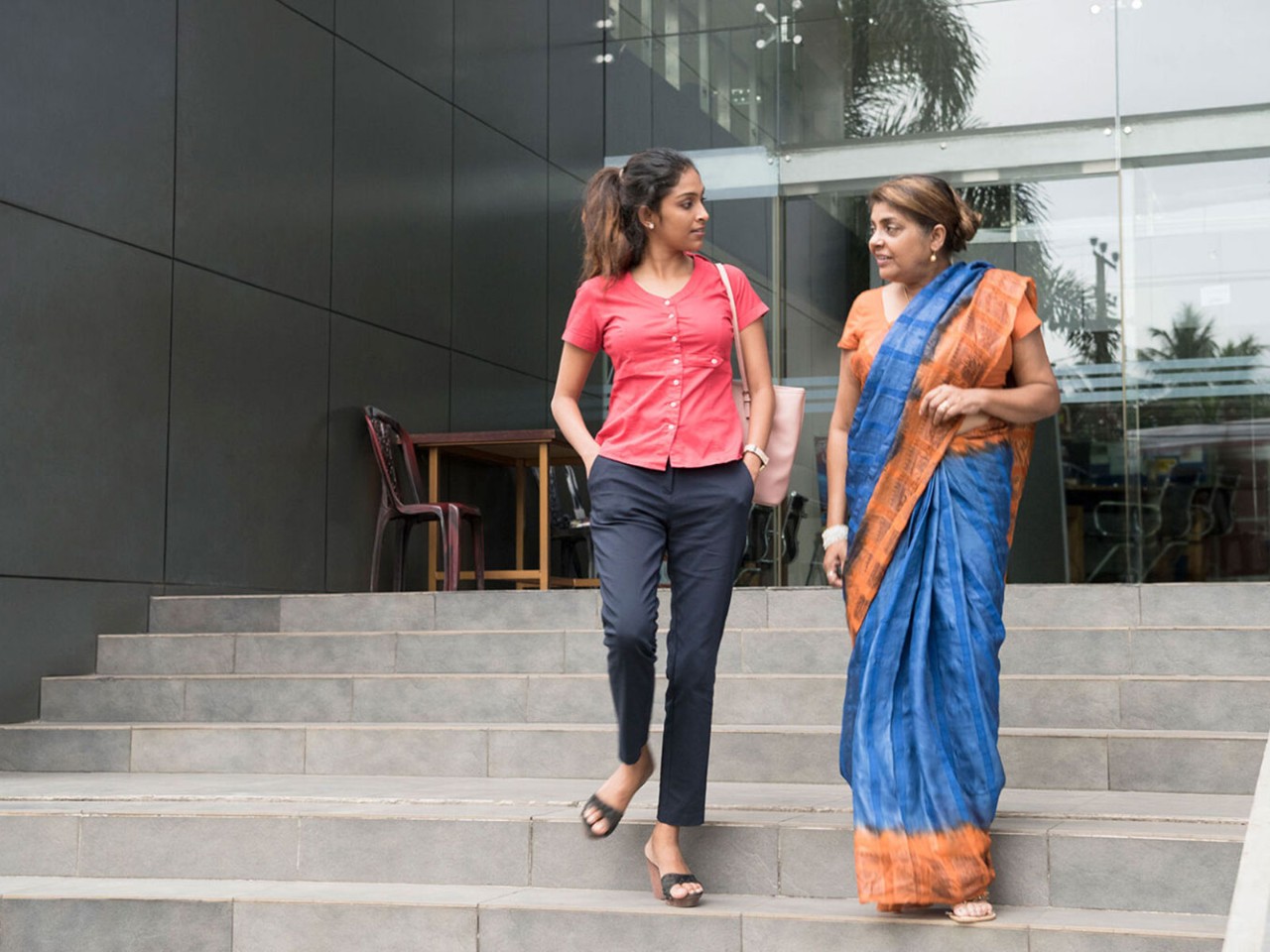
Indian accountants are rapidly employing artificial intelligence (AI) and building a virtual infrastructure for it to streamline their work processes. From routine tasks such as data entry to complicated processes for compliance management, report drafting, account reconciliations and fraud detection, AI applications are boosting efficiency and accuracy in the profession.
‘AI could increase productivity by five to 10 times,’ claims Ankit Jallan, a professional accountant working in Dispur, Assam. Based on the productivity increase of his own firm and that of his clients, he adds: ‘any accountancy firm using AI tools could grow its revenues by several times within a year.’
‘70% of Indian corporates are somewhere along the digital value chain’
The adoption of digital technologies in India’s business sector has been among the fastest in the world, says Shankari Raman, Chennai-based partner with the Indian member firm of EY Global. ‘In my experience, 70%–80% of Indian corporates are at various stages along the digital value chain, embracing technologies like AI to transform their businesses,’ she says.
Upskilling
EY has itself launched several digital tech initiatives within India. One of them is EYQ, an internal conversational AI assistant introduced in 2023 that give access to large language model capabilities within a secure environment. ‘AI enables audit teams to identify risks, validate data and provide predictive insights with unprecedented accuracy and speed,’ Raman says.
In 2024, EY started upskilling its Indian workforce in AI through bootcamps and masterclasses: ‘It is vital that our people remain continuously ahead of the curve,’ Raman explains.
Jallan acknowledges that AI tools are still in their infancy but says they are already helping accountants to post, audit and analyse accounting entries. ‘We just click a picture of an invoice, and an AI tool takes it from the picture gallery [of a mobile phone] and uploads it to the accounting software where debit and credit elements are fed automatically,’ he says.
The most common use of AI in Indian firms is for drafting-related work
Draft master
The most common use of AI in Indian firms is for drafting-related work, such as creating an audit plan based on historical data or drafting a response to a legal notice, according to Rishir Soni, an accountant in Indore, Madhya Pradesh. ‘AI also helps in financial analysis, checking the accuracy of data, confirming the accounting entries and following accounting standards,’ he says.
However, Soni points out that many of the AI tools currently available in India lack integration with different software, which creates a significant challenge. ‘If data from accounting software cannot be extracted in a format compatible with AI tools like ChatGPT, it becomes difficult to perform meaningful analysis,’ he explains.
He adds that AI developers are trying to integrate their tools with accounting and data analysis software. For this purpose, he says, ‘they are using an application programming interface or building AI chatbots in ChatGPT itself’.
CA GPT
A significant development has been the creation of the CA GPT platform by the Institute of Chartered Accountants of India (ICAI), allowing unprecedented access to a wealth of data and resources for accounting, auditing, tax, and management consultancy. CA GPT’s knowledge-base comprises not just the tax and accounting regulatory details of 5,000 listed Indian companies but also their annual reports. The ICAI says: ‘The reports, covering a wide spectrum of industries, are now seamlessly integrated into over 70 generative pre-trained transformers [large language model AIs] across various industries, empowering professionals to perform complex financial analysis with a single click.’
Vijay Srinivas Kothapalli, a Hyderabad-based partner at C Ramachandram who is also an information systems auditor and ICAI AI certifier, says the platform has the distinct advantage of being accessible to professional accountants as it requires training prompts that only CAs can give. ‘In the generative AI models, the more intellectual the prompts are, the better the output is,’ he explains. ‘There is 40%–50% variation in quality of ChatGPT vs CA GPT responses.’
‘If SMPs can plan it smartly, they can get high-quality output’
In the CA GPT training sessions, accountants are taught to input intelligent, professional and structured prompts, says Kothapalli. ‘Already 8,000 CAs are trained on the first level and the target is to cover at least 20,000 by the end of March 2025.’
Accounting professions in other Asian countries such as Singapore and Sri Lanka have started similar programmes or soon will but may struggle to catch up with the Indian model, according to Kothapalli. ‘[Because of the size of those countries] they can’t generate the 250,000 to 300,000 prompts that CA GPT has done in the first two months of its launch,’ he says.
CA GPT has been a particular boon for small and medium practices (SMPs) as they lack the financial resources to invest in advanced technology to match their clients’ needs and the expectation of regulators, Kothapalli says. ‘If they can plan it smartly with these simple tools, they can get high-quality output.’
Tech start-ups
Indian firms also have access to AI-enabled accounting tools offered by tech start-ups in the country’s robust IT sector, which generated more than US$250bn in revenue for 2023/24, according to the National Association of Software and Service Companies (Nasscom). They include Febi.ai and Finalert India, which specifically offer AI solutions for accountants.
Gurugram-based Febi.ai says it focuses on solutions to avoid accounting errors, compliance delays and financial mismanagement. After partnering with STPI Next, a central government agency supporting start-ups, the company’s platform will also be made accessible to 1,200 new businesses.
‘Accountants must not just adopt but lead the digital transformation’
Finalert offers systems to simplify and assist with tax and regulatory compliance. The company says its ‘AI-powered tax solutions can analyse past tax data and suggest ways to optimise tax liabilities’.
Such AI offerings are expected to proliferate for Indian accountants. ‘It is no longer a choice but a necessity for accountants to not just adopt but lead the digital transformation,’ Raman says.
More information
Visit ACCA’s dedicated SMP hub where you’ll find information and resources for practitioners.


